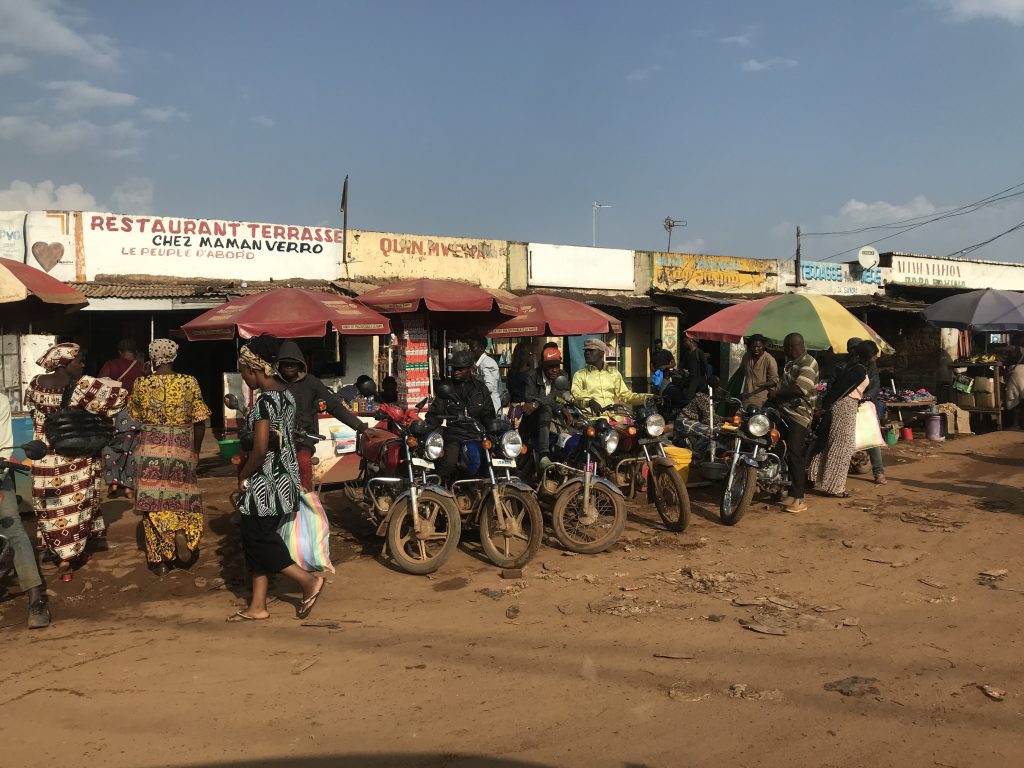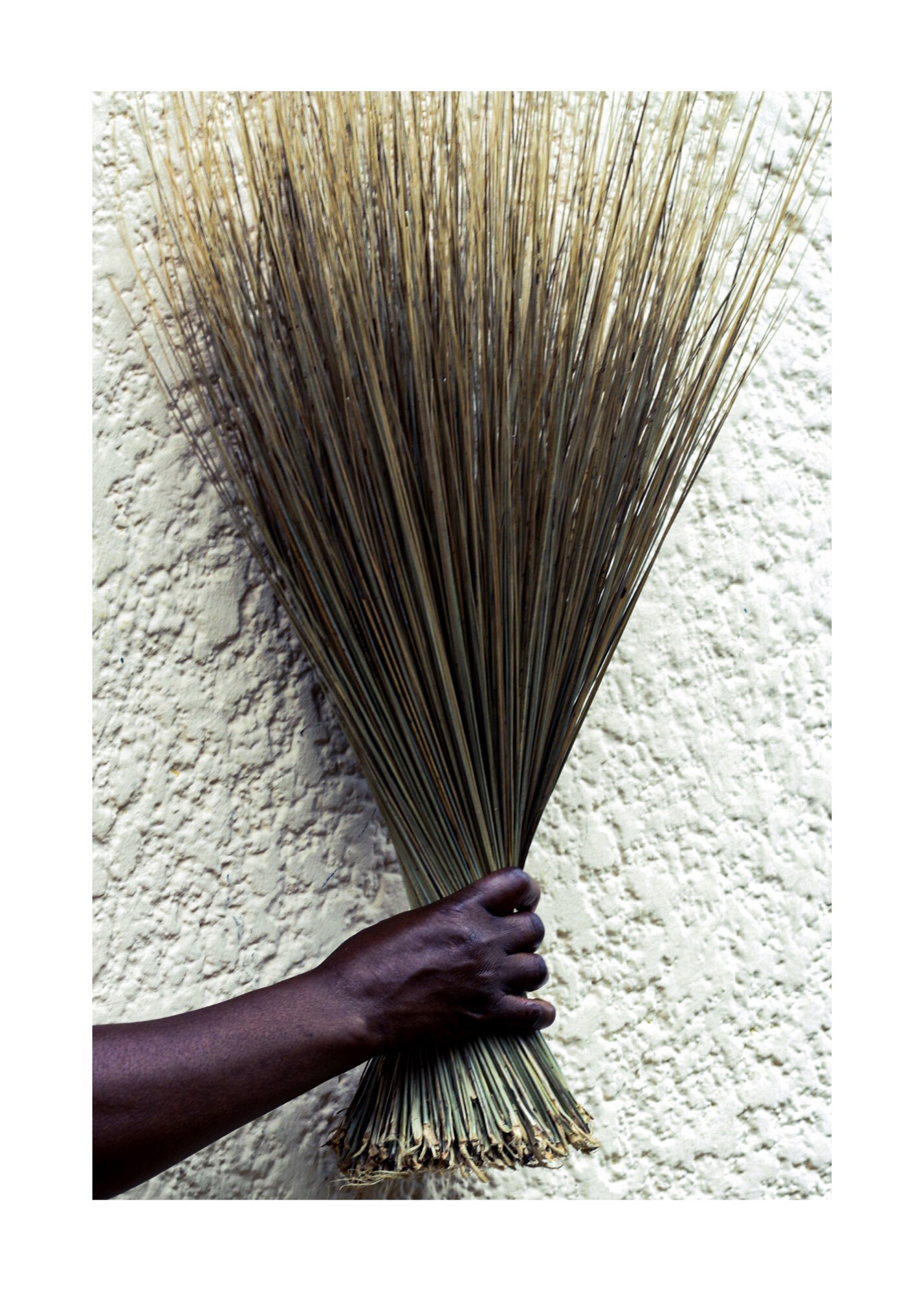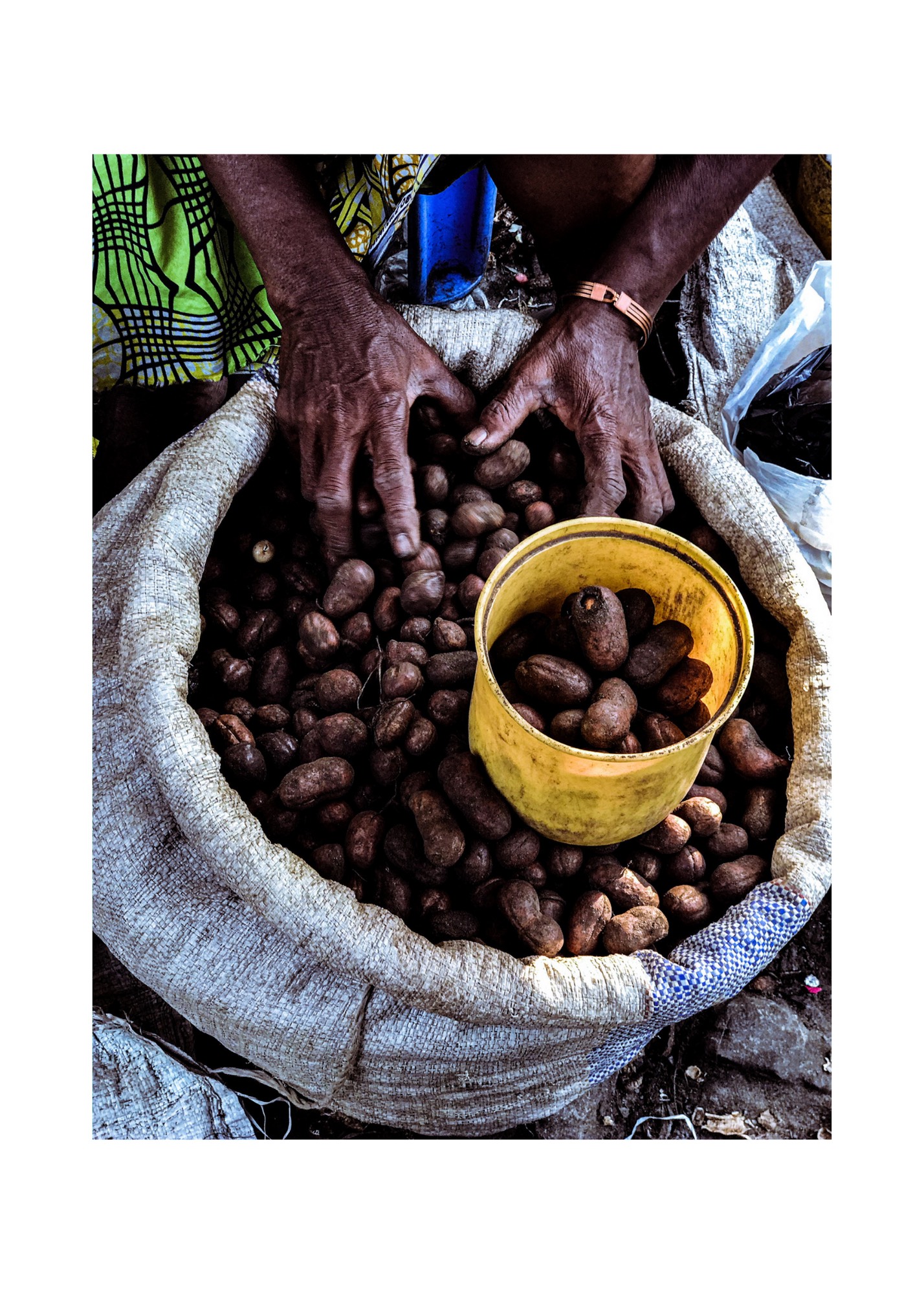
Photo Illustration by Ezinne Osueke / THE REPUBLIC. Source Ref: Station de Ngomo, Congo / PICRYL, Women sorting and washing minerals at Site Kansonga in DRC / WILPF International, Diamonds (Zaire) / WIKIMEDIA, Metatorbernite / WIKIMEDIA.
THE MINISTRY OF GENDER X SEXUALITY
Why the Conflict in Congo Is an African Feminist Struggle

Photo Illustration by Ezinne Osueke / THE REPUBLIC. Source Ref: Station de Ngomo, Congo / PICRYL, Women sorting and washing minerals at Site Kansonga in DRC / WILPF International, Diamonds (Zaire) / WIKIMEDIA, Metatorbernite / WIKIMEDIA.
THE MINISTRY OF GENDER X SEXUALITY
Why the Conflict in Congo Is an African Feminist Struggle
Today, we remember the Congolese massacred in Kishishe, the bodies abandoned in the streets of Goma, the child who, having lost their parents, wanders without knowing where to go, and our sisters—victims of rape and humiliation—deprived of medical care and psychosocial support. We also think of the women and children burned alive in Goma’s central prison when the Rwandan army entered the city. The horror imposed is of unmatched cruelty. Decades after the first aggression against the Democratic Republic of Congo, murders, rapes, and abuses continue, worsening humanitarian crises. Several million people have been displaced since the start of this aggression.
This statement from the National Network for Survivors of Sexual Violence in DRC in February 2025 is a rallying cry—one that echoes the enduring struggle for justice in a nation facing continued invasion, violence, and dispossession. While it is Congolese men, women, and children who bear the brunt of this conflict, the entire world ‘benefits’ from the instability imposed on the DRC.
Thirteen years ago, major news outlets cited a 2011 United Nations human rights report declaring the DRC ‘the worst place in the world to be a woman,’ often accompanied by the statistic that, ‘Every hour, 48 women are raped in the DRC.’ This media coverage framed Congolese women as passive victims of a region once labelled the ‘Heart of Darkness’, ignoring the historical, political, and systemic forces fuelling this violence. This media coverage, largely produced by Western journalists and international non-governmental organizations, failed to recognize that this violence is a direct continuation of colonial exploitation, capitalist plunder, and land dispossession. The one-dimensional representations of conflict minerals and war rapes obscured the complex gender dynamics that occurs in mining communities at large in Congo and the African continent. The ongoing conflict in Congo is fundamentally a continental African feminist issue. Whether in the diamond mines of Zimbabwe, the gold fields of Ghana, or the iron ore sites of Sierra Leone, women are at the forefront of artisanal and small-scale mining. Across the continent, women’s labour is exploited in ways that systematically erode their economic security, bodily autonomy, reproductive health and traditional knowledge. By understanding the history, context and consequences of the crisis in Congo—and by situating the struggles of Congolese women within a broader pan-African framework—we can more clearly see the urgent need for policies that centre African women’s sovereignty over land, resources, and economic agency.
The DRC is often described as paradoxically rich and poor: a country with untapped mineral reserves worth an estimated $24 trillion, yet one where 73.5 per cent of the population survives on less than $2.15 per day, according to the World Bank. As global demand for lithium, cobalt, and coltan grows, fuelling smartphones, artificial intelligence, electric vehicles, and military weaponry, the violent extractivist economy in the DRC intensifies. However, its impacts are not evenly distributed: Congolese women endure the worst of this crisis, facing systemic sexual violence, economic marginalization, and exclusion from land and resource rights.
The ongoing conflict in the Congo is fundamentally a continental African feminist issue because it systematically undermines women’s economic security, bodily autonomy, and traditional knowledge. By situating this struggle within a broader pan-African context, we can better understand the urgent need for policies that centre African women’s sovereignty over land, resources, and economic agency.
THE CHERISHED COLONY
In the late 1800s, Belgium’s King Leopold II sought to secure a colony to satiate his imperial ambitions, famously declaring, Il faut à la Belgique une colonie (‘Belgium must have a colony’). Under the guise of a philanthropic venture, he presented his colonization of central Africa as a humanitarian effort. In reality, the Congo Free State (1885–1908) became a capitalist free-for-all, where imperialist powers plundered resources without restriction, as detailed in the book, King Leopold’s Ghost by American journalist Adam Hochschild.
Hochschild describes Leopold’s enterprise as one of the largest ‘slave-owning and slave-raiding’ operations in modern history, leading to the deaths of over ten million people due to murder, starvation, forced labour and disease. While men were subjected to forced labour, women were also targeted, particularly through the abduction of wives and the widespread use of sexual violence as a tool of terror. As noted in the book by anthropological historian, Nancy Rose Hunt, An Acoustic Register, colonial violence against women, including the systematic use of rape, was largely erased from early humanitarian narratives, which focused more on severed hands as the defining atrocity of Leopold’s regime. In her study on Congolese women’s history, Belgian historian, Amandine Lauro, speaks on how Leopold’s brutal regime significantly impacted women’s livelihood and subsistence. With men often forced into rubber harvesting and other compulsory labour, the responsibility for ensuring the subsistence of communities fell heavily on women. They were tasked with ‘producing food for their families and for the European colonizers and their auxiliaries,’ often under already strained conditions. This disrupted traditional labour patterns, placing an even greater burden on women in food production.
The demand for resources and labour under Leopold also meant that women were used as hostages to force men to work. In 1907, one of the rare testimonies to surface was that of Boali, a Congolese woman who courageously recounted the sexual violence she endured at the hands of colonial forces. Her testimony, along with those of 13 other women, exposed the deeply entrenched use of sexual violence as a weapon of control and submission. These testimonies challenge dominant historical narratives that prioritize economic plunder over gendered violence, demonstrating that sexual violence has always been central to extractivist oppression in the region.

shop the republic
NEW MASTERS, SAME CHAINS
Belgium’s formal colonial rule (1908–1960) profoundly institutionalized gendered oppression, with missionary schools actively reinforcing patriarchal values that confined Congolese women to domestic roles. As Hunt notes, ‘A domesticizing humanitarianism came into play for girls and women across the Belgian colonial terrain…reinforcing an image of a Congolese woman as homemaker, helpmeet, dependent, and needy.’ This colonial focus on domesticity and motherhood significantly limited women’s access to education and opportunities in sectors like the burgeoning mining industry, which became increasingly masculinized under Belgian rule as men were primarily employed in extractive labour. Even though women had varying roles and status in precolonial Congo, the colonial administration promoted a vision of ‘traditional’ gender roles that largely excluded women from formal economic participation beyond agriculture. This historical masculinization of the mining sector during the Belgian Congo has contributed to the enduring perception of it as ‘men’s work.’
By confining them to the private sphere and limiting access to education and formal employment, colonial policies disrupted the diverse precolonial roles and power structures that women once held across Congolese societies. Belgian maternalism replaced these traditions with a Western-centric ideal of domesticity.


The prioritization of domestic training over academic and professional skills systematically excluded women from the lucrative and increasingly masculinized mining sector, mirroring the broader colonial extraction of resources that relied on male labour. This historical marginalization from key economic activities has had lasting repercussions, contributing to the persistent invisibility and under-remuneration of women’s labour, as well as the violence they face in contemporary artisanal and small-scale mining. The colonial disruption of gendered divisions of labour in resource management also eroded traditional knowledge held by women in various sectors.
Furthermore, the colonial regime’s efforts to regulate marriage and sexuality, often imposing a biased interpretation of Congolese practices, significantly restricted women’s bodily autonomy. By defining and controlling women’s roles through colonial norms, these structures laid the foundation for the ongoing struggles over women’s self-determination across the continent.
Today, this colonial economic model persists through multinational mining companies that operate within legal frameworks rooted in colonial legacies. These structures are further reinforced by proxy militias and Western-backed economic policies that exacerbate gendered inequalities. As detailed in a dossier produced by the Centre Culturel Andrée Blouin, the Centre for Research on the Congo-Kinshasa, Likambo Ya Mabele (Land Sovereignty Movement), and Tricontinental: Institute for Social Research, ‘The Congolese Fight for Their Own Wealth’:
The country suffers, on one hand, from wars of aggression by its neighbours Rwanda and Uganda, aided by proxy militia groups, and, on the other, from multilateral institutions such as the World Bank and IMF that enforce neoliberal policies as a requirement for receiving loans.
These policies reinforce economic dependency, prioritizing the interests of foreign capital in resource extraction over local development and gender equity within the mining sector. Consequently, Congolese women face significant barriers to accessing land, mining licenses and financial support, further limiting their ability to benefit equitably from the country’s mineral wealth. Linda Mensah, a researcher who takes a decolonial afro-ecofeminist approach on climate justice issues, explains in this article, ‘Battling on multiple frontiers: an African feminist examination of women’s struggles in artisanal and small-scale mining (ASM)’ that the historical exclusion of women from large-scale mining and their continued marginalization in artisanal and small-scale mining reflect a broader structure of ‘extractivist patriarchal capitalism,’ which maintains colonial hierarchies in gendered labour and resource access within the DRC’s mining economy.
shop the republic
MINING, MISERY AND CONTROL
Gender-based violence is central to the destabilization of the DRC, not just as a consequence of war but as a deliberate strategy to control land and resources. As Hunt argues in An Acoustic Register, war-related sexual violence is not incidental but weaponized to terrorize communities and drive people from resource-rich areas. Since 1996, during Congo’s first war following Rwanda’s invasion of Congo, the conflict has led to over six million deaths, with countless women subjected to sexual violence at the hands of militias, government forces, and even peacekeepers.
This violence is deeply tied to the militarization of the mining sector. The vast power imbalance between multinational corporations and the Congolese state allows these companies, many of which have budgets exceeding the GDPs of the countries they operate in, to wield enormous political, economic, and social influence over human rights policies. These corporations often collaborate with or hire military and security forces to secure their mining concessions, facilitating the forced displacement of local communities. Minerals such as coltan, cobalt, and wolframite, essential to the global electronics industry, are extracted under conditions that enable labour exploitation, forced evictions, and systemic sexual violence.
As Congolese researchers, Annie Matundu Mbambi and Léonnie Kandolo, note, artisanal mining accounts for 80 per cent of the DRC’s exported mineral production. However, since much of this sector remains informal, revenue evades taxation, meaning local economies do not benefit from the wealth extracted from their land. Large-scale mining corporations, despite viewing artisanal mining as ‘illegitimate,’ continue to profit from these supply chains by purchasing minerals at artificially low prices from informal miners. Women, positioned at the lowest level of the mining hierarchy, often engage in droumage, the process of cleaning and sorting minerals for low wages.
As reported by the Women’s International League for Peace and Freedom, radiation exposure from certain minerals has been linked to birth defects, miscarriages, and other long-term health complications. With many farmers in mineral-rich regions facing forced evictions or economic desperation, their only options are to abandon agriculture or be absorbed into the exploitative mining economy. Some are forcibly removed, while others, denied access to their land and compensation, turn to mining as a last resort. Artisanal mining, though dangerous and poorly paid, often provides a more stable income than farming, drawing thousands of women and children into precarious labour.
A 2023 Amnesty International report documents human rights violations by Multinational corporations—including Canada-based Ivanhoe Mines and Luxembourg-based Metalkol—including forced displacements, often carried out with the backing of the Forces of the Democratic Republic of the Congo and other armed militias. The report the case of Kabibi, a 38-year-old woman, who was raped by soldiers hired to remove farmers from their land, as she was harvesting cassava on her own land. This further illustrates how gendered violence is central to resource exploitation in the DRC. This type of violence directly targets kinship ties and makes it hard for survivors to return to their communities.
However, the gendered violence Congolese women face, both within and outside of artisanal mining, is not unique to the DRC. As writer, Toni Morrison, once said, ‘Evil is silly. It may be horrible, but at the same time, it’s not a compelling idea. It’s predictable.’ Forced land expulsions in mining regions across Africa further exacerbate these injustices. In Ghana, women farmers in mining zones have been driven off their ancestral lands with little to no compensation, making them more vulnerable to economic insecurity and sexual exploitation in mining camps. In Zimbabwe, large-scale mining projects have led to the eviction of entire communities, disproportionately impacting women who lack formal land ownership rights and are often left without recourse. In Sierra Leone, multinational corporations have displaced rural populations under the guise of economic development, stripping women of both agricultural livelihoods and access to land inheritance.
African women in artisanal and small-scale mining navigate capitalist patriarchy on multiple levels—through formal state laws, informal customary legal regimes, and entrenched cultural biases that restrict their access to resources. The struggles of Congolese women in mining are not isolated; they are part of a broader pattern of African women’s dispossession under global capitalism.
shop the republic
-
‘The Empire Hacks Back’ by Olalekan Jeyifous by Olalekan Jeyifous
₦70,000.00 – ₦75,000.00Price range: ₦70,000.00 through ₦75,000.00 This product has multiple variants. The options may be chosen on the product page -
‘Make the World Burn Again’ by Edel Rodriguez by Edel Rodriguez
₦70,000.00 – ₦75,000.00Price range: ₦70,000.00 through ₦75,000.00 This product has multiple variants. The options may be chosen on the product page -
‘Nigerian Theatre’ Print by Shalom Ojo
₦150,000.00 -
‘Natural Synthesis’ Print by Diana Ejaita
₦70,000.00 – ₦75,000.00Price range: ₦70,000.00 through ₦75,000.00 This product has multiple variants. The options may be chosen on the product page
shop the republic
RESISTANCE AND RECLAMATION
From Kimpa Vita’s precolonial resistance against slavery to the women of the Lutonde mining cooperative, Congolese women have long been at the forefront of resistance, denouncing exploitation, mobilizing their communities, and rebuilding in the face of systemic barriers. In artisanal mining, widely perceived as ‘men’s work,’ women frequently face discrimination, economic marginalization, and exclusion from decision-making. To combat these challenges, the women of Kibe, a small village in South Kivu, formed Lutonde—a cooperative that not only provides a space for women to work collectively but also serves as a crucial protective mechanism against exploitation.
Cooperatives offer women a measure of security in the precarious and often unregulated mining sector. By organizing collectively, women gain access to legal recognition, financial resources and structured supply chains, reducing their vulnerability to unfair labour practices and intermediaries who profit from their isolation. Formalization strengthens this protection by ensuring their rights are upheld, integrating them into responsible sourcing initiatives, and improving their working conditions. While cooperatives do not completely dismantle the inequalities of the mining industry, they serve as a critical buffer against discrimination, granting women greater control over their labour and livelihoods.
Beyond economic struggles, Congolese women also confront the devastating impacts of sexual violence, which is weaponized to fracture kinship ties and prevent survivors from reintegrating into their communities. In response, grassroots organizations such as Female Solidarity for Integrated Peace and Development and the National Network for Survivors of Sexual Violence in the DRC have created initiatives that provide survivors with access to legal support, healthcare, and opportunities to rebuild their lives. These networks foster solidarity among women who have been ostracized, offering them a chance to reclaim their dignity and reconstruct their social bonds.
Through their activism, mobilization, and resistance, Congolese people strive to protect their land for the well-being of all, prioritize local economic autonomy over extractivism, and rebuild societal values rooted in human rights and equality. They call for just governance, critical education to foster independent thinking, and a patriotic culture that unites and inspires action. They emphasize the formation of citizen collectives, both in the Congo and abroad, to create spaces for collaboration and shared decision-making⎈
BUY THE MAGAZINE AND/OR THE COVER
-
‘Natural Synthesis’ Print by Diana Ejaita
₦70,000.00 – ₦75,000.00Price range: ₦70,000.00 through ₦75,000.00 This product has multiple variants. The options may be chosen on the product page















